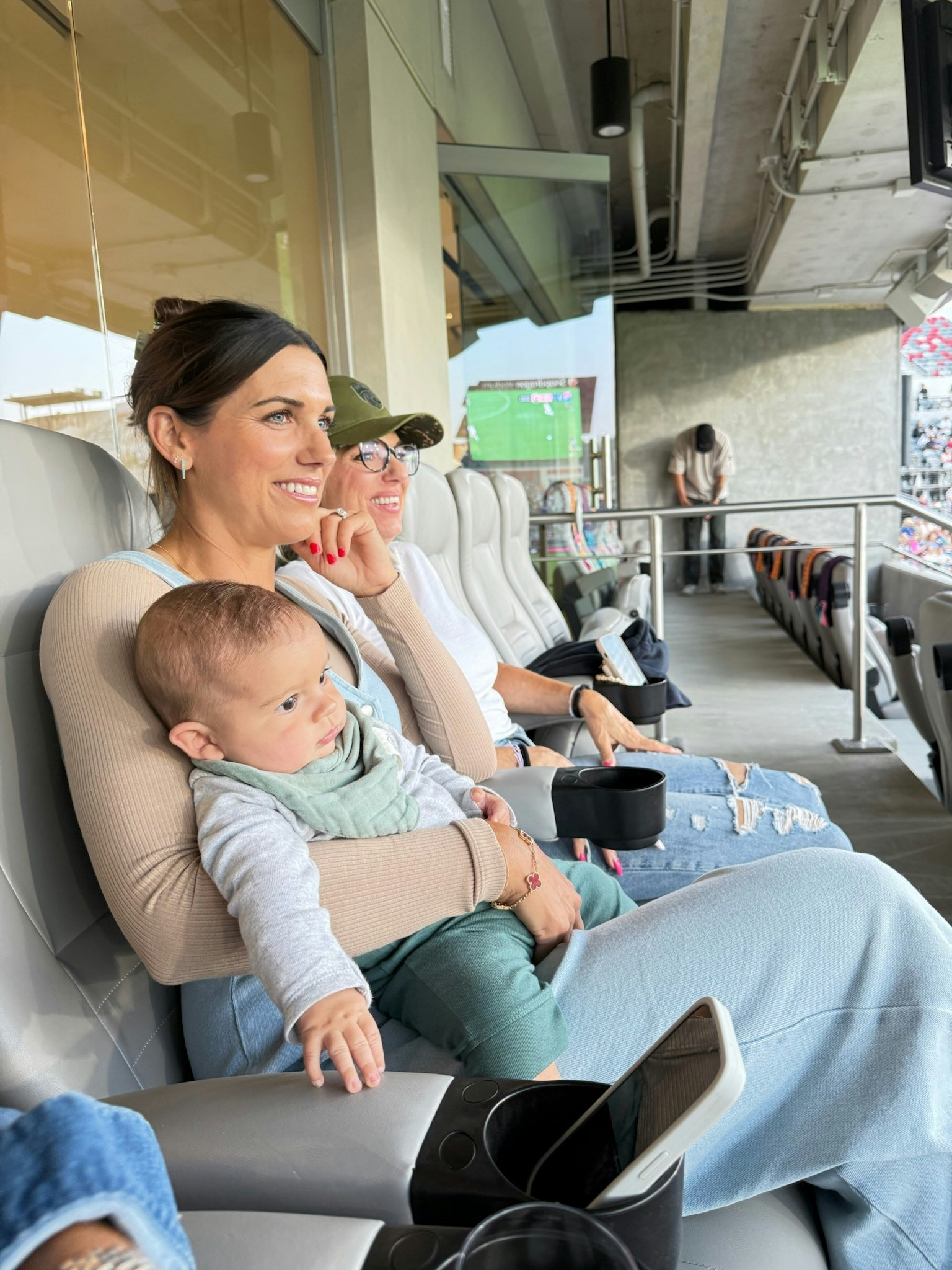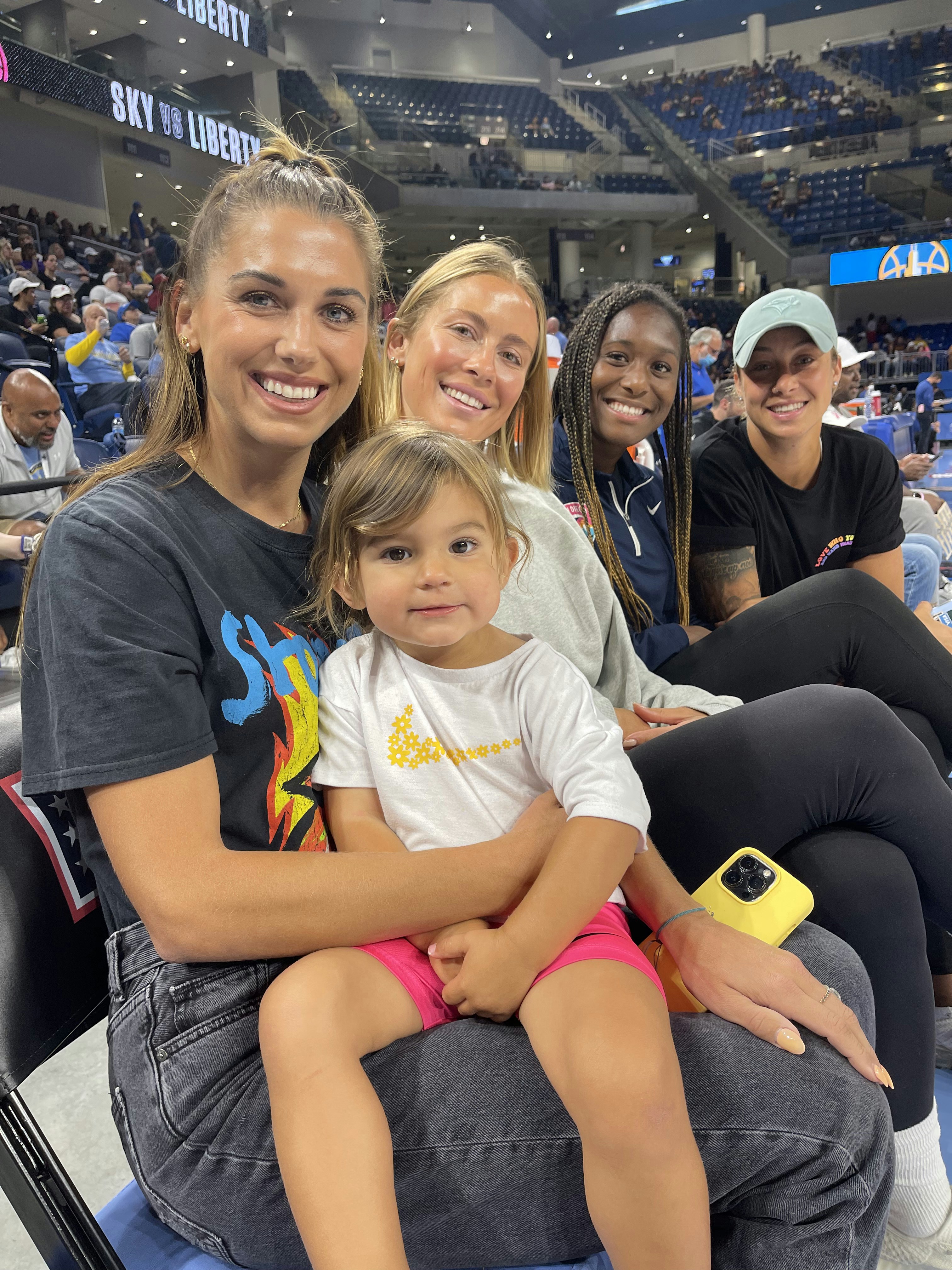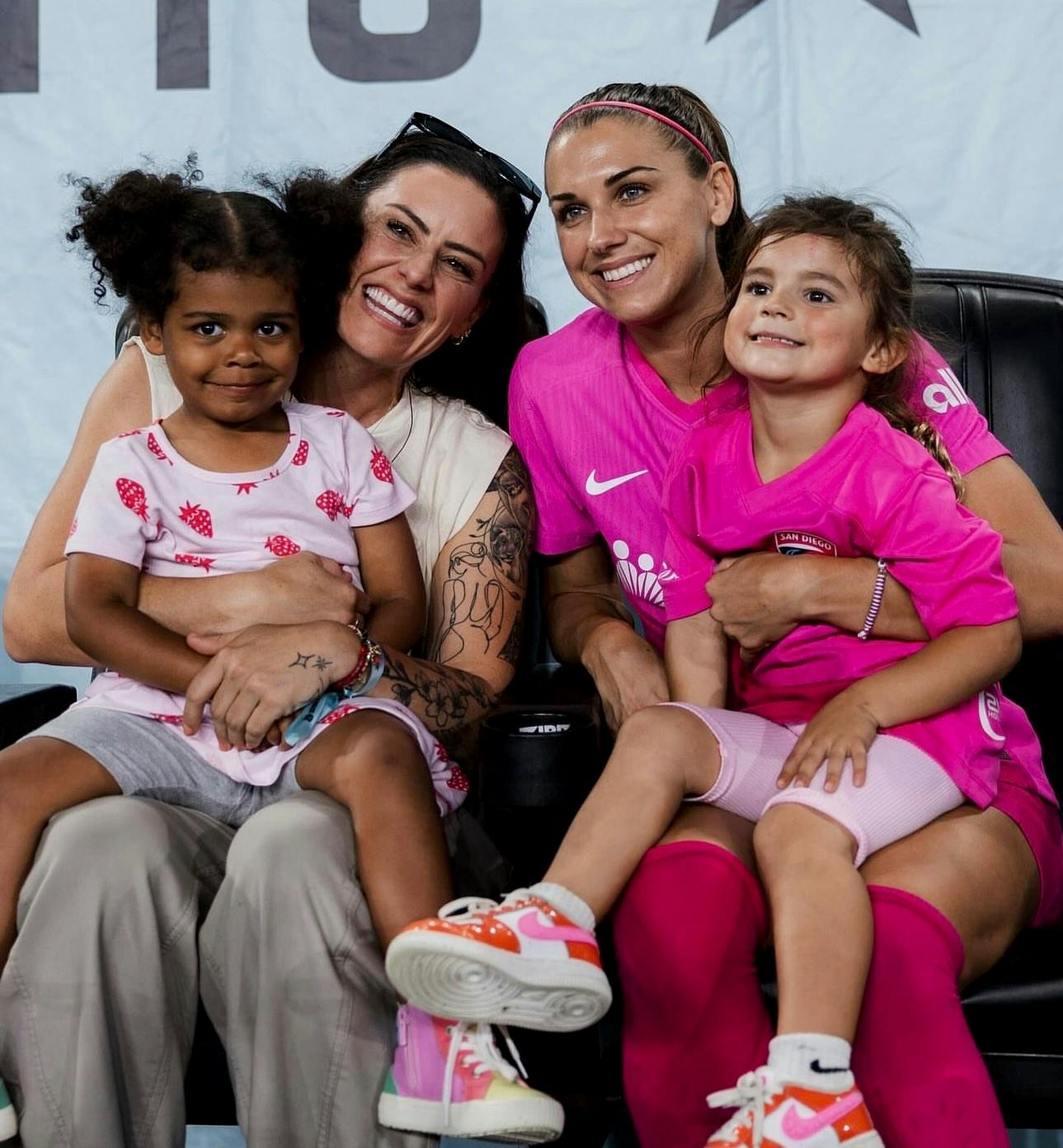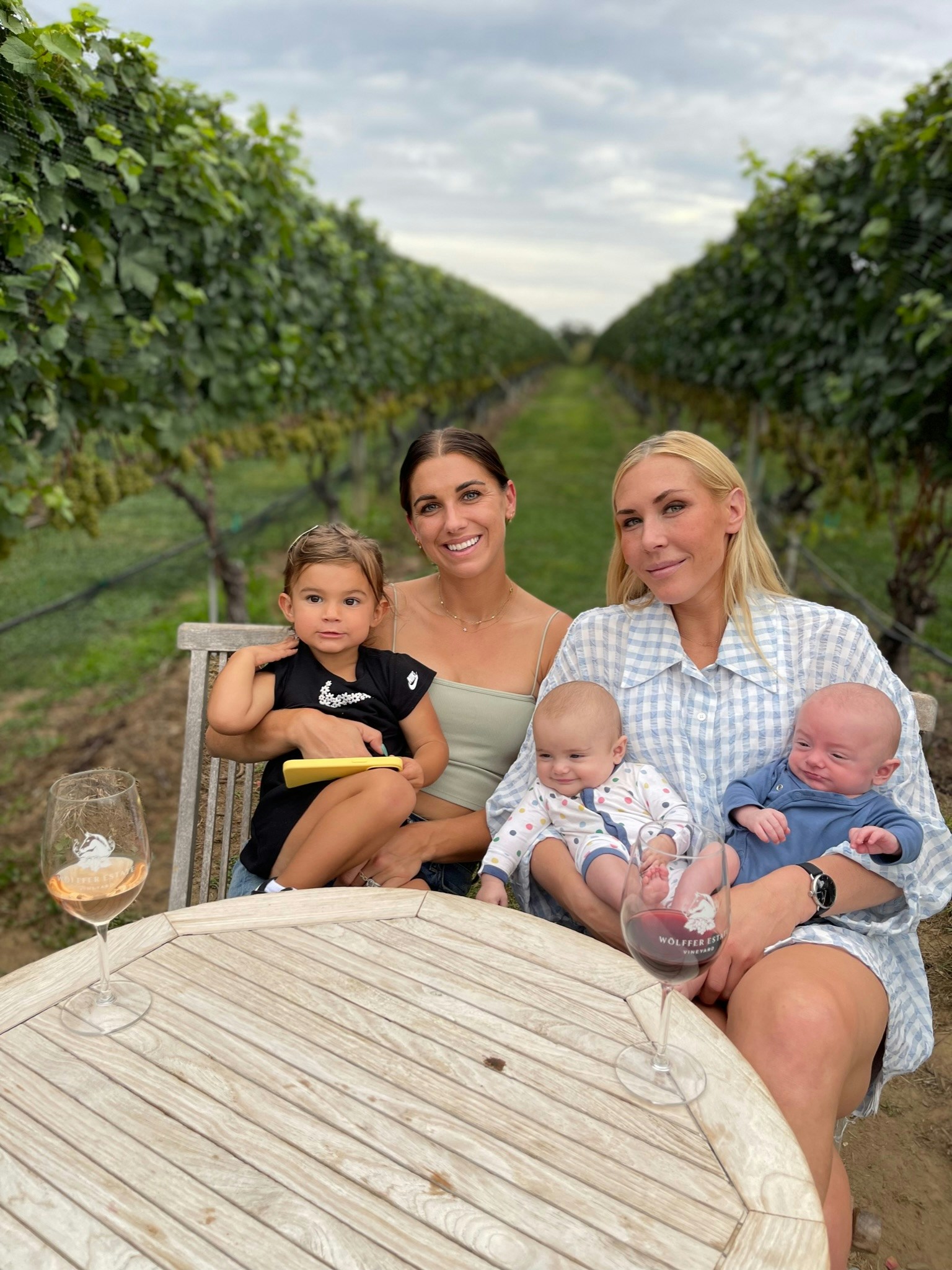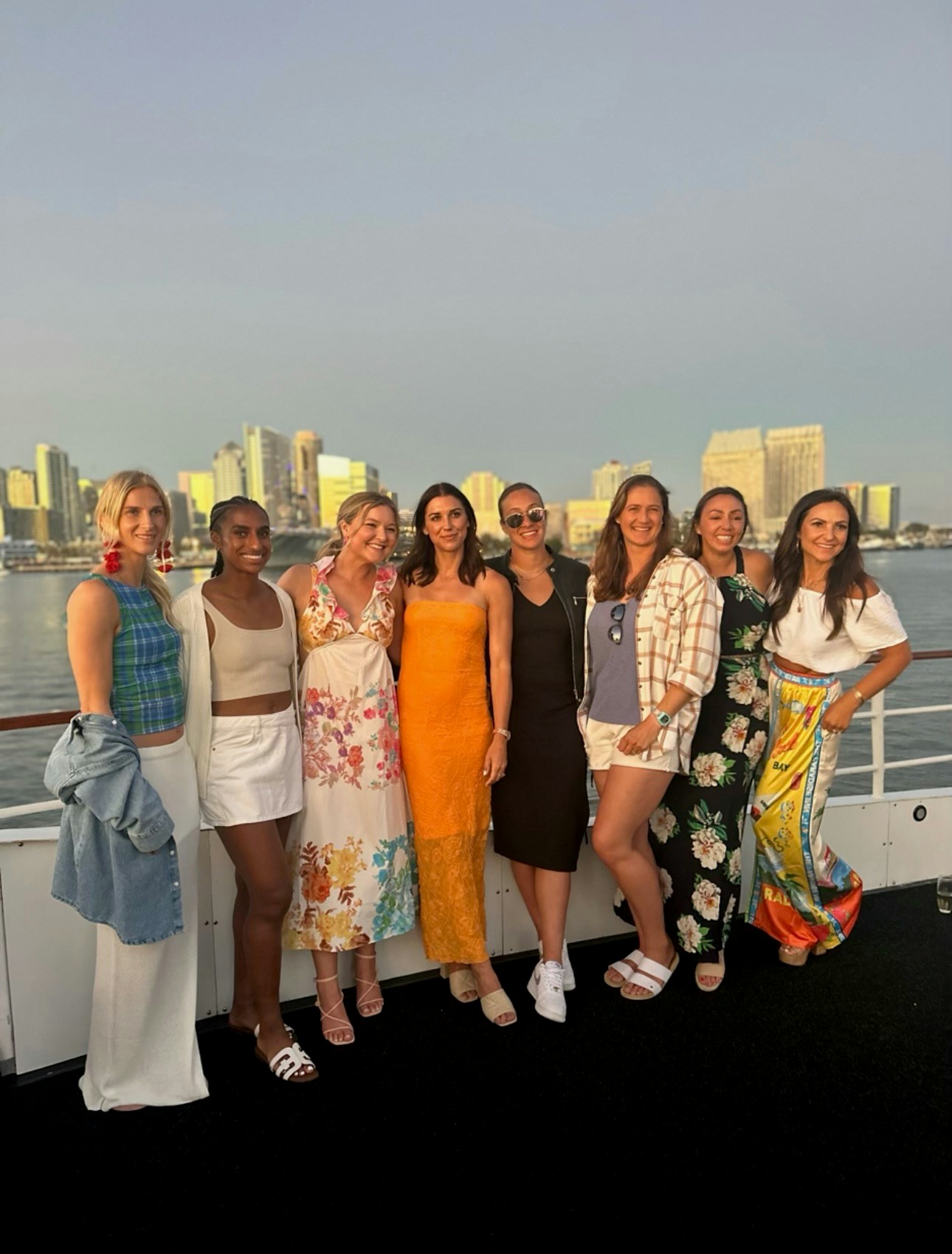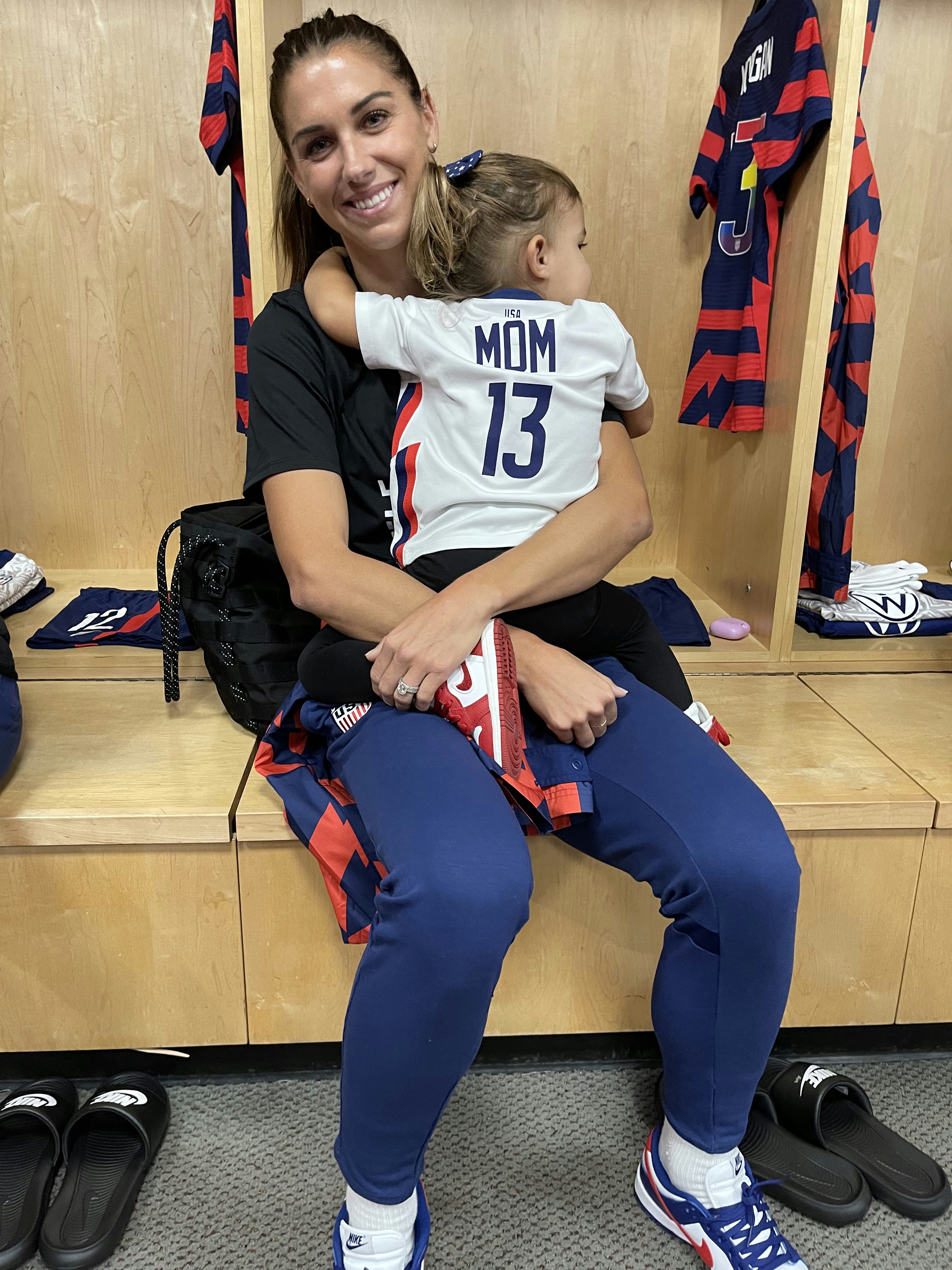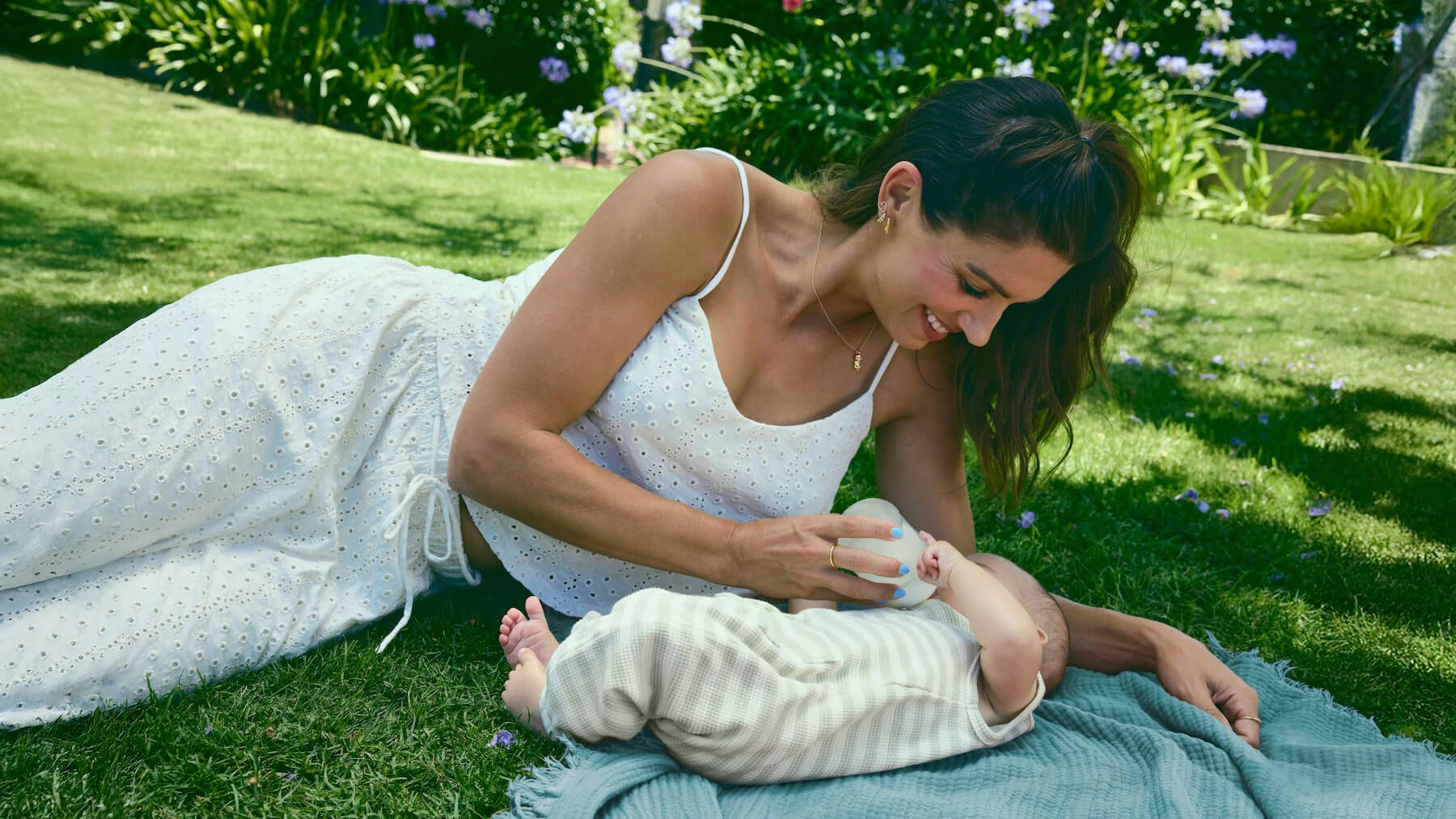
Getting Sticky With Alex Morgan
Photos by Grace Rivera, Words by AnaMaria Glavan
Alex Morgan is a former* professional soccer player who co-captained the U.S. women’s national team in 2020, helping secure a bronze medal. Frankly, it feels silly to give Alex an introduction at all; it feels even stranger to call her a “former” player. Because despite her official retirement—announced in tandem with her second pregnancy—she remains a fierce advocate for systemic change in professional sports. Alex is part of a graduating class of athletes who have, quite literally, moved the goalposts when it comes to how female athletes are treated.
Alex’s advocacy is a direct reflection of what every mother in America has to face: a tangled knot of frustrating logistics around birth, childcare, and feeding. It is a responsibility dumped on the birthing parent, the words “figure it out” written in invisible ink on the price tag.
Below, the athlete and mother of two reflects on being part of the generation reshaping societal perception of female athleticism, her partnership with Bobbie, and the relief she’s found in the flexibility the formula brand provides. More than anything, our conversation underscores her core message: sport—and the women who play it—demand respect. This should not be a man’s world. And if even accomplished soccer stars are forced to fight for basic support, where systemic structures to ease the transition are AWOL, it raises a pressing question: what about the rest of us?
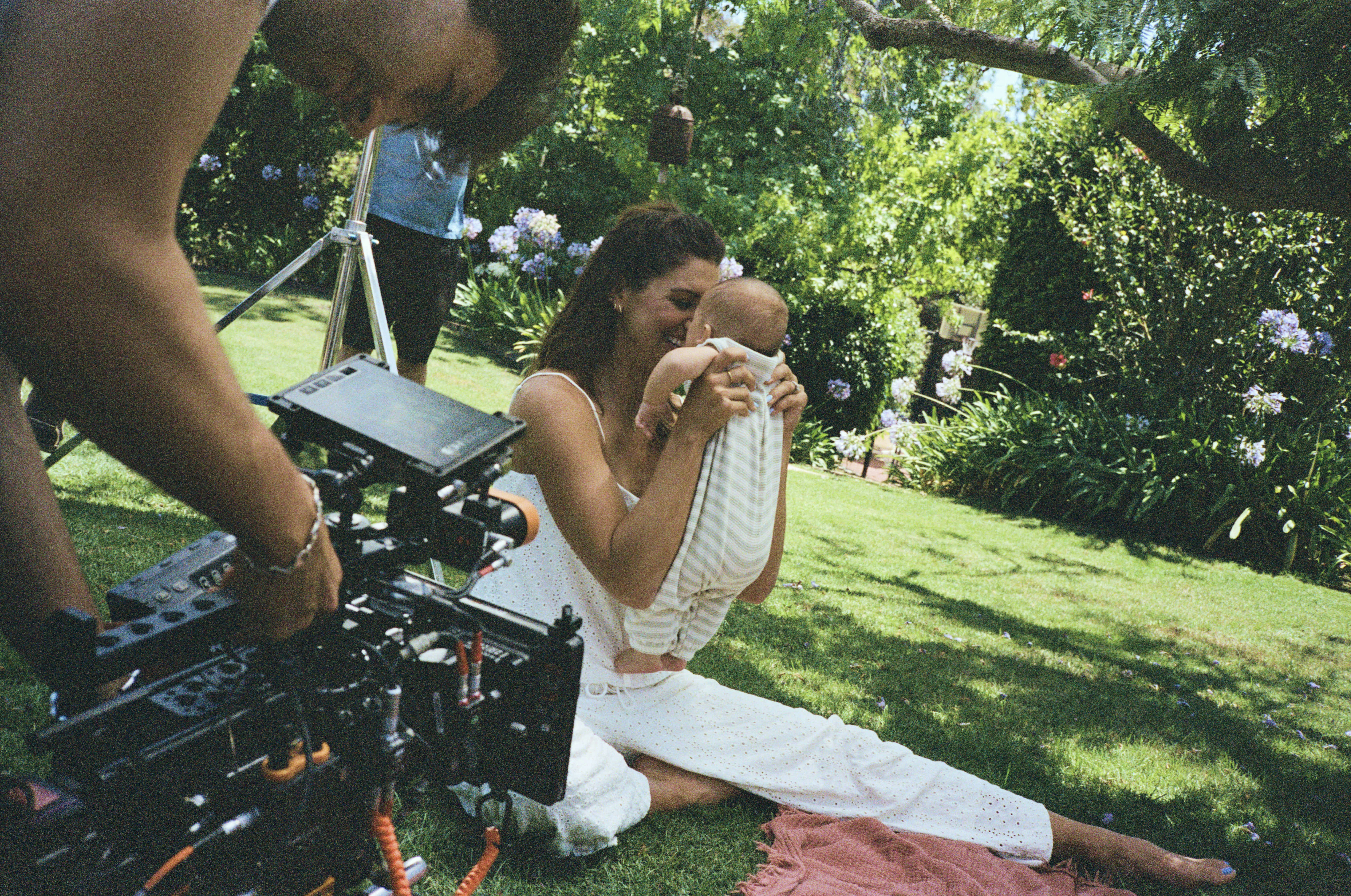
Proposed title for Morgan’s next memoir: “The Tokyo Olympics, A Year After Giving Birth”
I was at the peak of my career when I had my daughter. I didn’t get a lot of positive feedback when I announced my pregnancy—and that’s because women are simply not set up for success as working moms, or as moms in general.
There were a lot of logistics I had to figure out on my own. There wasn’t even a pathway for a childcare provider to join me on the road. Who was going to watch my daughter when I was playing games? At training? In meetings? In what way was the team going to support me? It was basically a blank slate—which gave me the opportunity to make an impact and push for change—and it made me think of the athletes who had kids before me with even less support. I respect them and their journeys but it made me realize how much work we had to do.
Parenting became a lot of figuring it out on the go. I had our nanny with me on the road, or my mom, or his mom, but the burden fell largely on me because I was breastfeeding. I also wanted my daughter with me wherever I went.
My daughter was only four months old and I was playing while away from her dad, my husband, for months at a time. I went to the Olympics in Tokyo a year after giving birth. I couldn’t bring her with me; none of our family could come either since no fans were allowed. I was away from her for more than 30 days. Eventually, my husband ended up retiring from soccer, which made things a lot easier logistically.
The whole experience was jarring, honestly. You spend your life thinking you live in such an advanced country, with resources and opportunities to help people go after their dreams, but moms face so many barriers that make it harder to do both.
Having my daughter opened my eyes to those barriers, both with the national team and in the National Women’s Soccer League (NWSL). I became determined to advocate both for myself but for future working moms in sports, too. Because sometimes, if you don’t go through it yourself, you don’t really understand. I wanted to help my teammates without kids understand why we all needed to advocate—for me, for other moms on the team, for future moms. Your priorities just completely change when you have children.
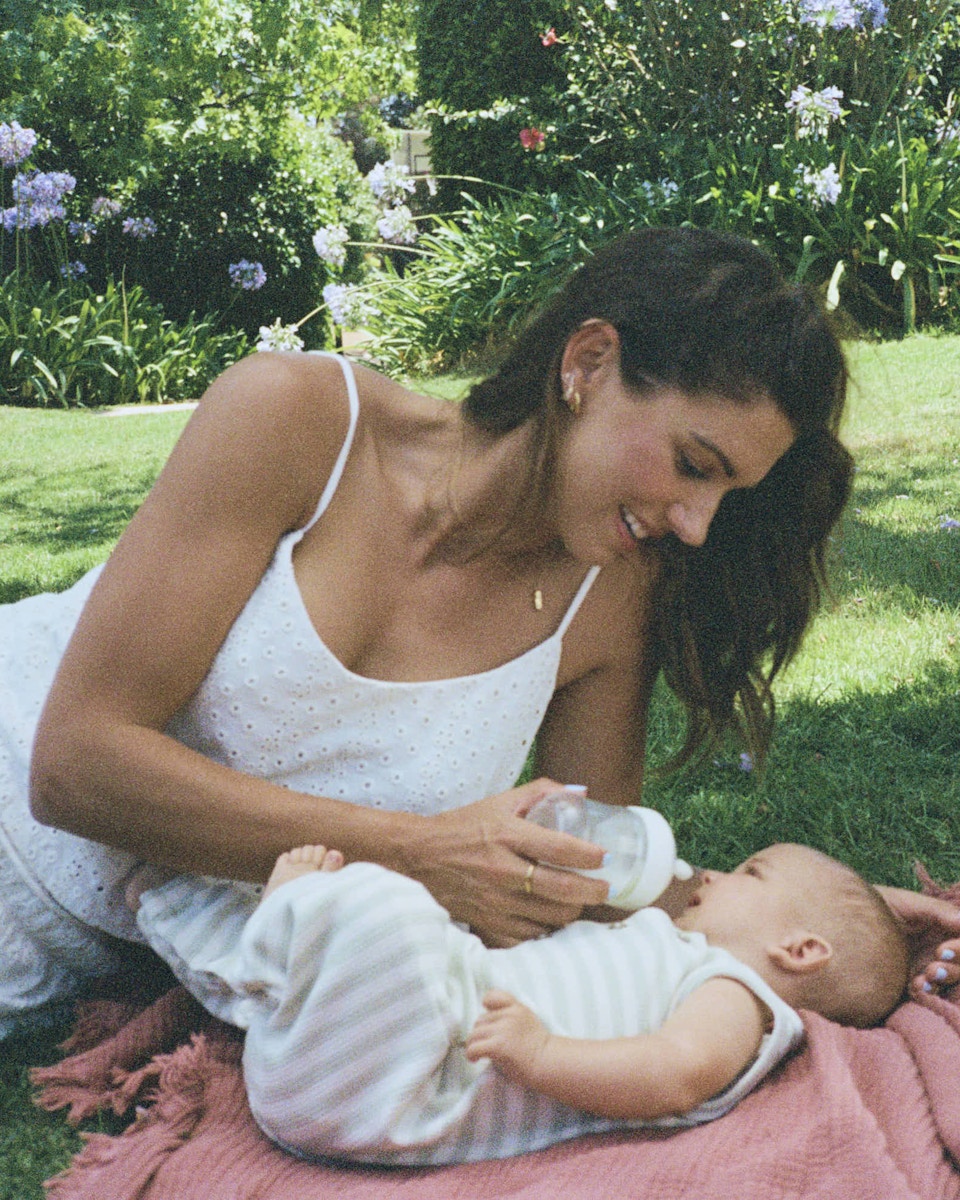
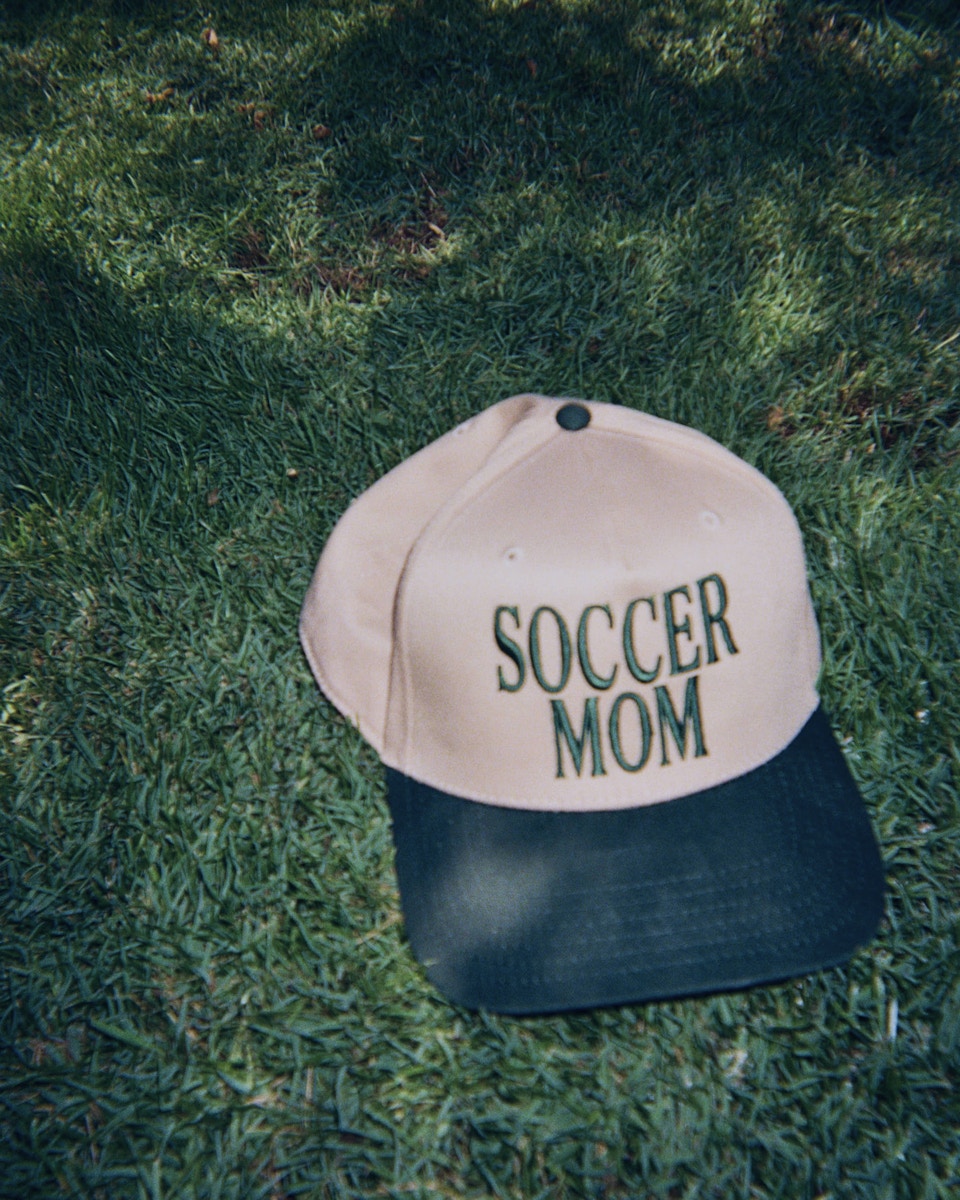
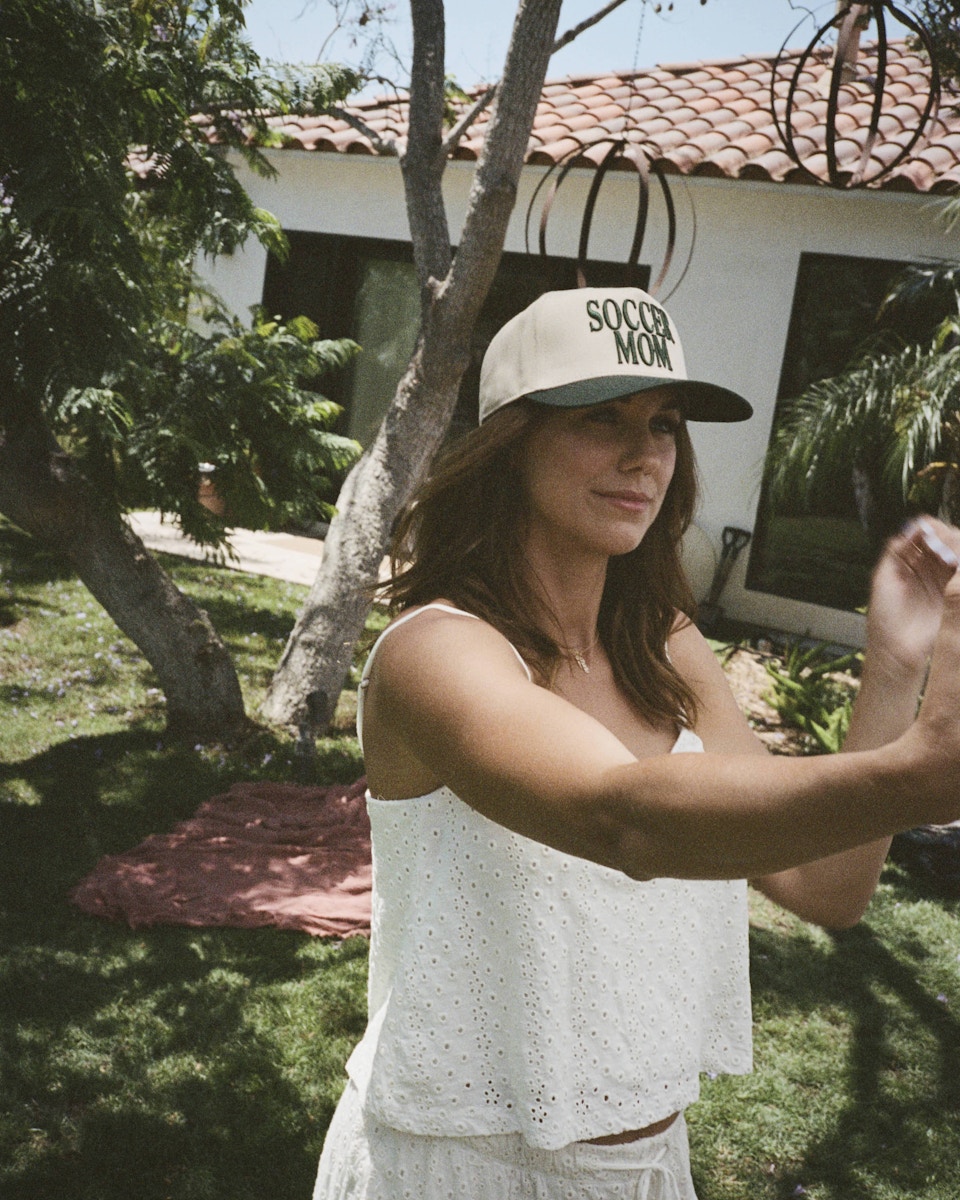

"There were a lot of logistics I had to figure out on my own. There wasn’t even a pathway for a childcare provider to join me on the road. Who was going to watch my daughter when I was playing games? At training? In meetings? In what way was the team going to support me? It was basically a blank slate—which gave me the opportunity to make an impact and push for change"
FED. IS. BEST.
There's always pressure as a mom: breastfeeding vs. bottle feeding vs. formula. It's always that comparison game. I feel way more relieved with the feeding journey now because it's my second time round. You can go with the flow a little bit more, and I also don't feel pressure from outside noise to do something in a certain way. My journey with my son is ours alone.
What I was fixating on with Charlie, in comparison to Enzo, is that I really needed sleep because I was getting back to playing. I was so regimented about feeding her, and having formula to step in was a lifesaver during a time where I just didn't need another added stress. I love Bobbie's story; the clean ingredients were what initially drew me in.
With Enzo, I'm going to breastfeed until I feel like it’s affecting my mental health or if my supply begins to dip. Knowing I have options is so important: it takes that added stress and throws it out the window. What Enzo needs is what I'm going to give him. The most important thing is that I’m raising and growing a healthy child. It's not about the specifics of how many ounces of breast milk or formula a child gets; it's about adapting to their needs and helping them grow.
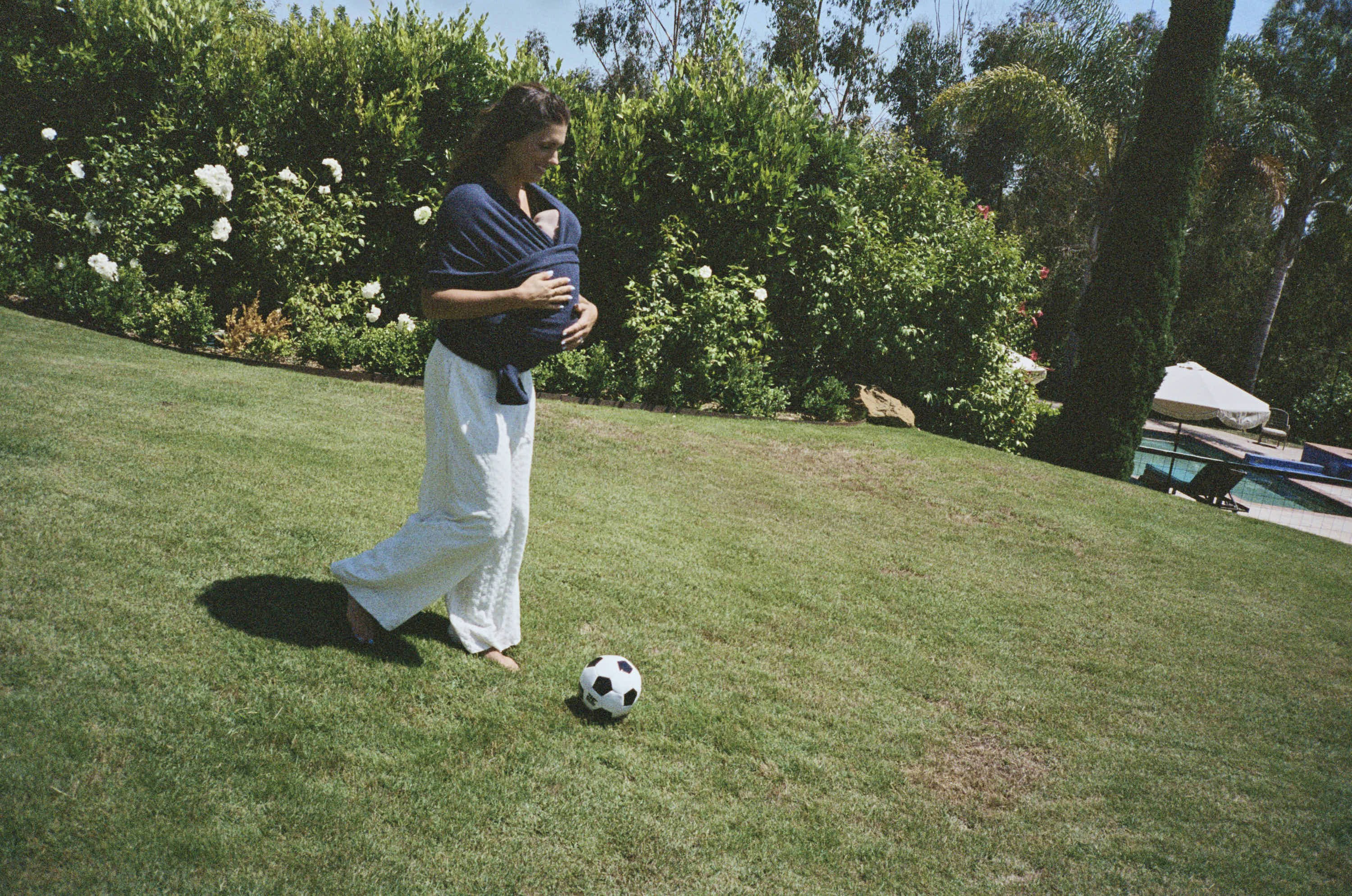
"The whole experience was jarring, honestly. You spend your life thinking you live in such an advanced country, with resources and opportunities to help people go after their dreams, but moms face so many barriers that make it harder to do both."

Sports love to raise the standard—not always the right one
Sports are a male-dominated field, and the path to motherhood is often seen as the opposite of “success” in that space. For me, it’s been important to be vulnerable and bring forward the conversations that are usually kept quiet. In women’s sports especially, having women support one another is huge. It makes me feel more grounded as an athlete and it reminds me that I can have a bigger impact on the future—not just for other female athletes, but for the families they may want to create while still at the peak of their careers. Those women should be celebrated. Now you see Sophia Wilson having a baby at 24; that’s something that simply didn’t exist before. It would have been shamed.
Because to be clear: so much still needs to be done. In soccer and in basketball, too. We’ve seen progress (maternity leave is now celebrated instead of fought against by employers) but there are so many startup leagues—women’s volleyball, softball, ice hockey—that don’t have those standards. I get asked a lot about how we secured contracts with full paid maternity leave and childcare support. That should be standard across all women’s sports. It creates longevity, so female athletes can have a family and keep playing.
Research is also critical. Coming back after giving birth, I had to figure it out on my own. I Googled everything. What program works best? Which muscles do I activate? What’s the safest time to start? There should be real, tangible studies to guide us. Even with periods: every athlete’s cycle is different and yet you might have a gold medal game on the days you feel your worst. We need research that acknowledges that reality.
Right now, most studies—whether on supplements or performance—are done on male athletes. Then the results are applied as if they fit everyone. But men and women are inherently different. We need research focused specifically on female athletes to actually support them.
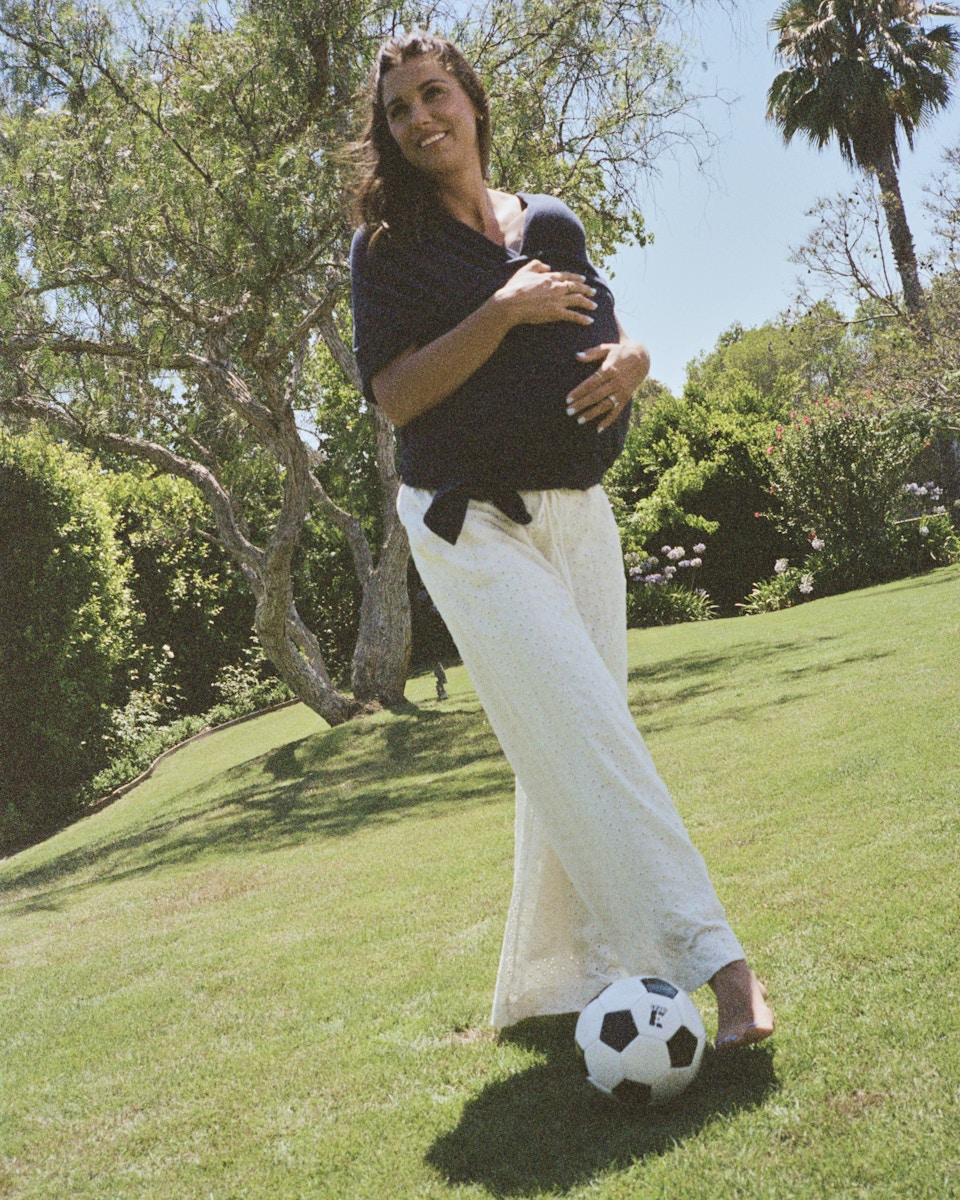
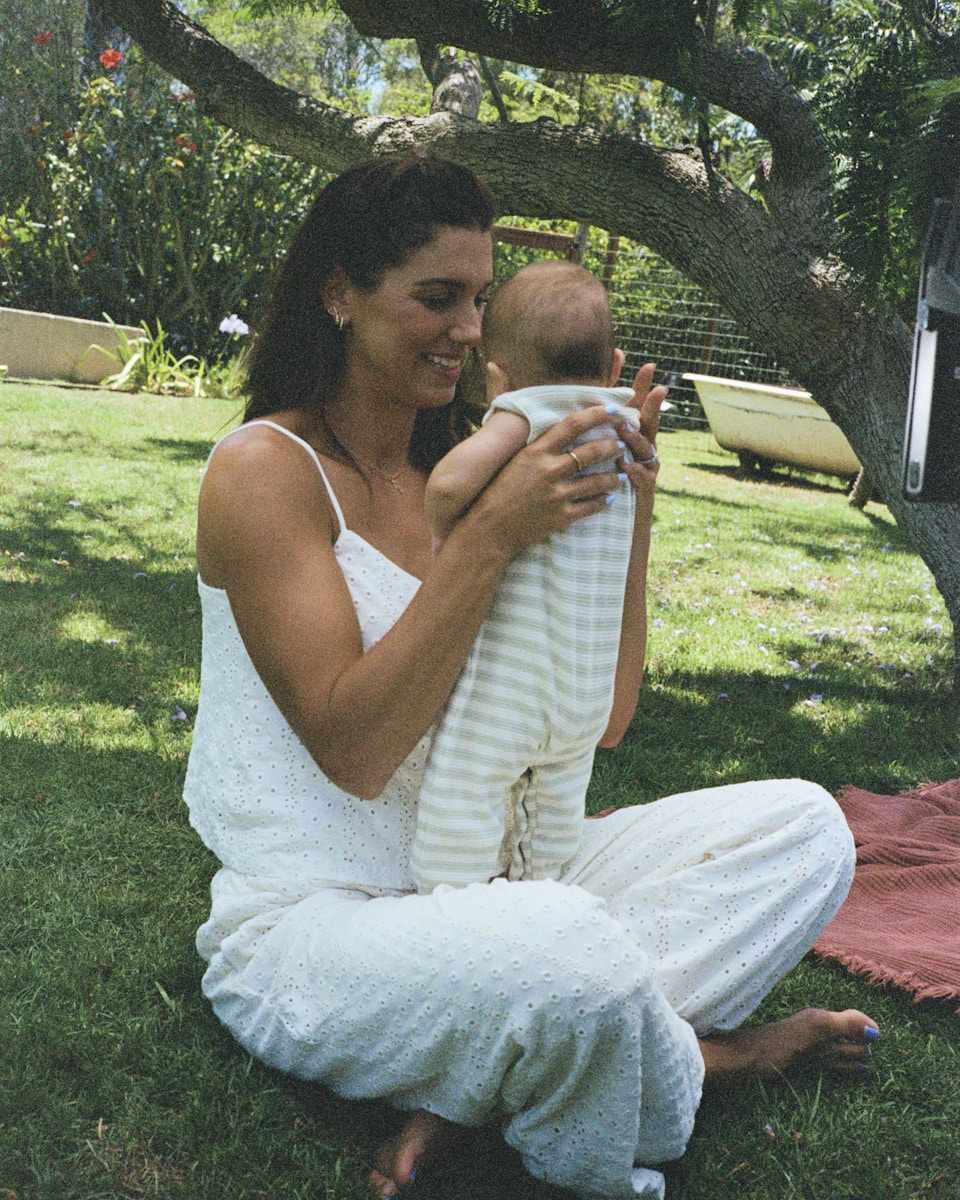
A pleasure, turned into a profession, turned back into a pleasure
I never thought of walking as something I’d enjoy, but after retiring, I’ve realized how much I love it. It slows everything down. As a mom, your brain goes a million miles an hour: your kid’s asking you 100 questions in five minutes, you’re constantly saying, Don’t do that, let’s eat this, are you hungry, do you want to go here, let me wipe your ass. There are a million things happening at once. Walking slows it all down.
As an athlete, you’re always told, Push, hurry, be on time, don’t be late. You live in constant rush mode. Now I get to slow down, and going for a walk every day feels so good. I’m actually going on the Camino de Santiago. This is my first long trip ever, because I’ve never had the chance to step away from training and soccer for that long. It’ll be the longest trip I’ve ever taken. And I just want to walk.
I also really enjoy playing golf with my daughter. It’s so fun seeing her out there. We got her a new set of clubs from Charlie Golf Company, and since her name is Charlie, she thinks they’re made just for her. We even customized the colors. Pink, of course. She’s so into it. We’ll go to a festival in San Diego or a Padres baseball game; my daughter actually caught a foul ball at a game the other day. Sports are still such a big part of our life, but it’s not forced anymore. It’s just for pleasure.



"There should be real, tangible studies to guide us. Even with periods: every athlete’s cycle is different and yet you might have a gold medal game on the days you feel your worst. We need research that acknowledges that reality. Right now, most studies—whether on supplements or performance—are done on male athletes.""

Hopping off a six-hour middle-seat flight and heading straight to training >>>
In the venture world, we have a lot of LPs in our funds who are women and moms. We’ve also invested in female-owned and women-led businesses. I’ve found that women who have kids and still decide to put everything into starting a company are unstoppable. There’s nothing that can stand in the way of a mom who’s driven—not only because she’s looking after her kids, but also because she wants her kids to be proud of her. There is no greater motivation.
That’s how I feel, too. I want my kids to be proud of what I’ve set up for them. I want to be a positive example: a hardworking mom, businesswoman, entrepreneur. I resonate with these women and their journeys. And I want to support them. I want to support women in sports, too.
Only five years ago, a team might've cost $2 million to buy: now they can be tens or hundreds of millions. When I came in 15 years ago, we’d travel on commercial flights, sitting in middle seats. I’d get off a six-hour flight, sometimes with my daughter on my lap, and be expected to train and then play a game right after. We played because we truly loved it. But I’ve loved seeing the shift of women being paid their true value and respected in ways we’ve fought for.
“I chose to retire, and I also chose to grow my family”
I didn’t want people to think I was retiring because I was pregnant or expanding my family. I wanted to be clear that those were two separate choices: I chose to retire, and I also chose to grow my family. Women can have families and still play sports.
Life has been completely different since I retired from soccer a year ago. I feel fulfilled and happy. My outlook is where it needs to be. I feel grounded and rooted in San Diego, in one place. Right now, being able to dictate my own schedule is new. I’ve always been at the mercy of my team and coach. Now, I’m kind of my own coach, and I get to be there for my kids in a different way. I’ve been present for those important moments with my son, really soaking them in. I couldn’t do the same with my daughter because I was constantly on the go.
It’s hard. Sharing something that personal is really intimate. But in women’s sports, sometimes you almost have to walk people through it step by step to help the sport evolve. Not women—we already get it—but other people. Sometimes you just need to hold their hand.
